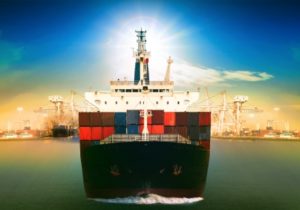Philippine port users and stakeholders are proposing the discontinuation of several fees imposed by agents of international shipping lines, claiming these are “unjust” and “oppressive.”
Port Users Confederation, Inc. (PUC) chairman Atty. Oscar Sevilla, in a Lower House Committee on Transportation (COTr) hearing on January 17, said since operations of international shipping lines are not regulated, their Philippine agents impose some unilateral charges that are “unfair, unjust, and even oppressive.”
For a copy of the PUC presentation, click here.
Fees which PUC wants discontinued or scrapped include container deposits, terminal handling charges (THC), emergency cost recovery fee (ECRF), and import imbalance fees/container imbalance charges.
The group said the container deposit is “unilaterally and arbitrarily imposed on all import containers regardless of any outstanding payables to shipping lines.” It said there are indications of a no container deposit practice in Hong Kong, Singapore, Bangladesh, China and Myanmar.
The ECRF, it contended, was non-existent before the Manila port congestion in 2014, but its collection persisted even after the congestion was licked.
The THC, according to PUC, is imposed by lines in Malaysia, Singapore, Indonesia and Thailand but the shipping lines that charge such a fee have their own respective terminals in the countries mentioned.
The group questioned the import imbalance fee considering the import-export ratio from Jan to June 2017 is 59-41, based on figures from the Philippine Statistics Authority.
PUC identified other charges which it described as “irrelevant and arbitrary”, and recommended their removal.
These include container cleaning charges (from US$20 to $50 per container); bill of lading (B/L) fee (from $60 to $100 per 40-foot container); documentation fees ($50 to $100 per 20-footer); destination fees ($50 per container terminal or $120 to $150 per container); turnover fees (P900 per 40-foot container); ocean freight handling fee (P500 per 40-footer / $26 per 20-foot container); chargeable weight/freight cost (P1,200 per 20-foot container); and surcharge ($900 per 40-footer container).
Not part of the cost
During the same hearing, Association of International Shipping Lines (AISL) director Joselito Ilagan clarified that a container deposit is not a cost but a deposit that will be fully refunded if the container is returned without damage or within the allowable return period.
AISL general manager Atty. Maximino Cruz explained that foreign shipping lines started requiring container deposits in 1995 after many instances of importers not returning empty containers, which are considered vital parts of a container ship.
He admitted there are shipping lines that take a long time to return container deposits, but noted it would be unfair to accuse all carriers of the same practice. He added there are some that in fact no longer require a container deposit.
The refund of container deposits within two weeks from return of an empty container that has no damages has been the subject of many AISL general membership meetings, according to Cruz. Not all shipping lines observe the practice, he said.
AISL president Patrick Ronas admitted some shipping lines take a long time to return container deposits due to processes “imposed by their (foreign) principals.”
After collecting the deposit, the same is sent to principals abroad for processing then remitted back to the agent for return to the depositor, who is either an importer or a customs broker, Ronas explained.
No breach of contract
Ronas, meanwhile, disputed claims that some shipping line agents are “doing things without the knowledge of their (shipping line) principals.”
“That is not true. That’s breach of contract… there’s a principal and agent agreement that we follow,” he said, adding that for the past three decades, he has not known of any principal changing its agent due to questionable dealings.
Ronas also sought to clarify the nature of some fees being charged.
The turnover fee and handling charge are not shipping line charges and may have been charged by freight forwarders, he said.
He explained that the B/L fee is the same as documentation (docs) fee, which means that when a shipper has paid the B/L fee, he should no longer pay the docs fee.
Not all carriers impose ECRF, according to Ronas.
At the end of the day, he said, importers and exporters have the right to negotiate with the carrier or to choose their shipping line. “For example, I know that there are companies who can actually speak to their carriers and talk about longer free time of containers.”
Freight forwarders, he added, can also negotiate with shipping lines on behalf of their client importers and exporters, a practice already done by some logistics companies.
Regulation of local charges
Asked if the government can regulate local charges by, for example, mandating the period for the return of container deposits, Cruz told PortCalls after the hearing that it can although there are charges that the government cannot regulate, such as freight.
Cruz pointed out shipping lines cannot offer uniform rates “because (AISL) member lines are all competitors” and may “be in transgression of the competition law” if they do so.
Another hearing on international shipping line charges will soon be conducted by the COTr together with the Committee on Economic Affairs. – Roumina Pablo
Image courtesy of khunaspix at FreeDigitalPhotos.net






